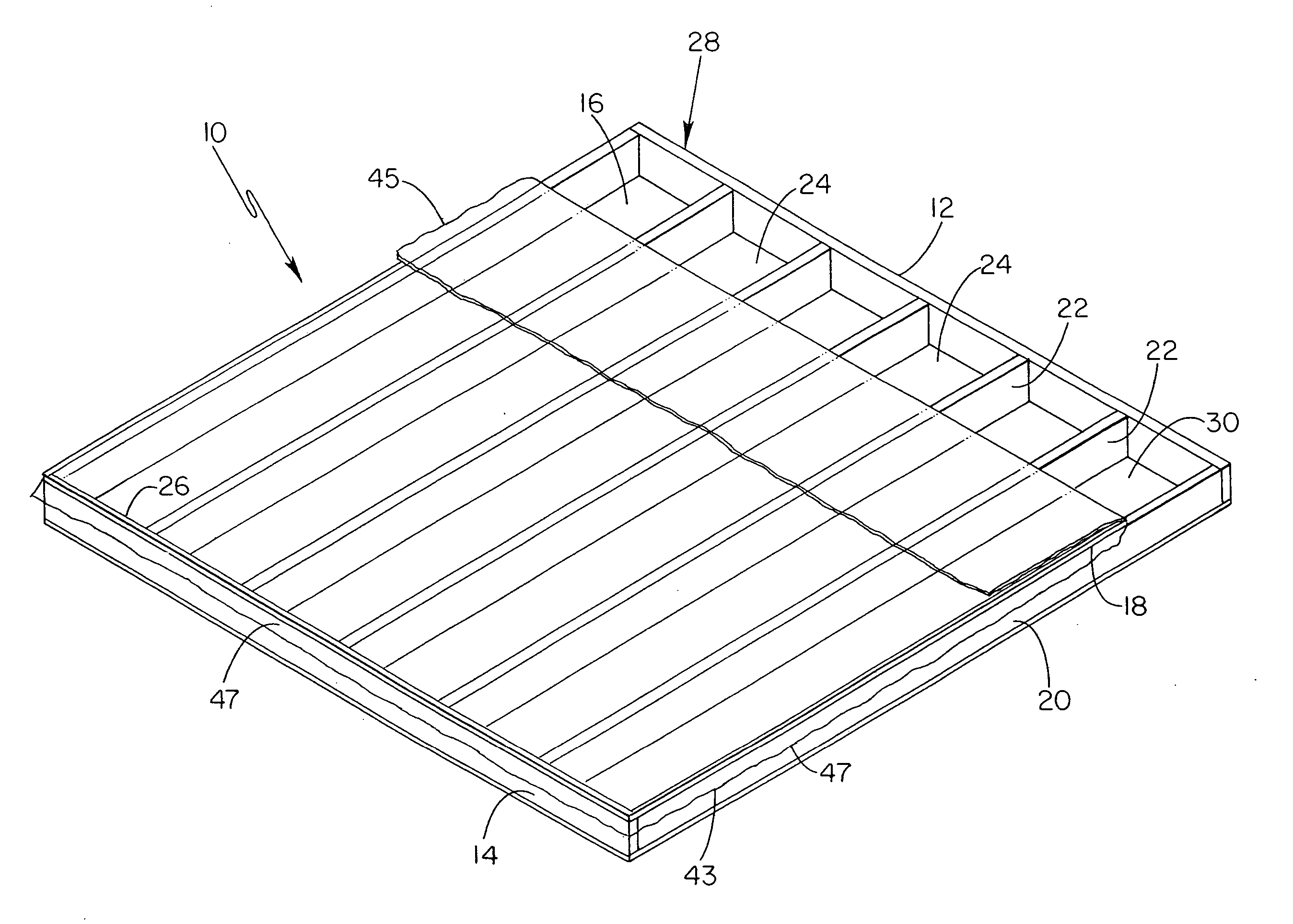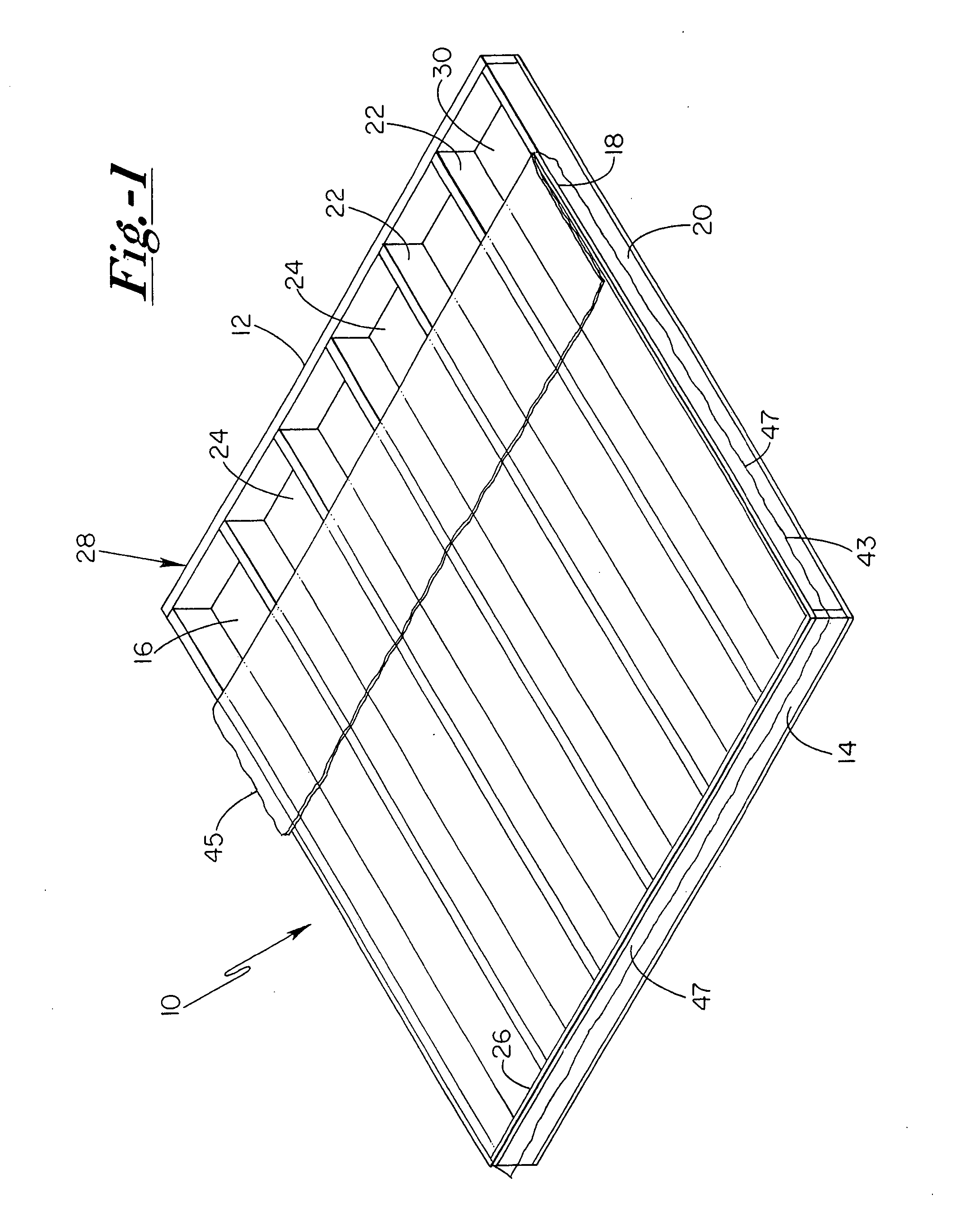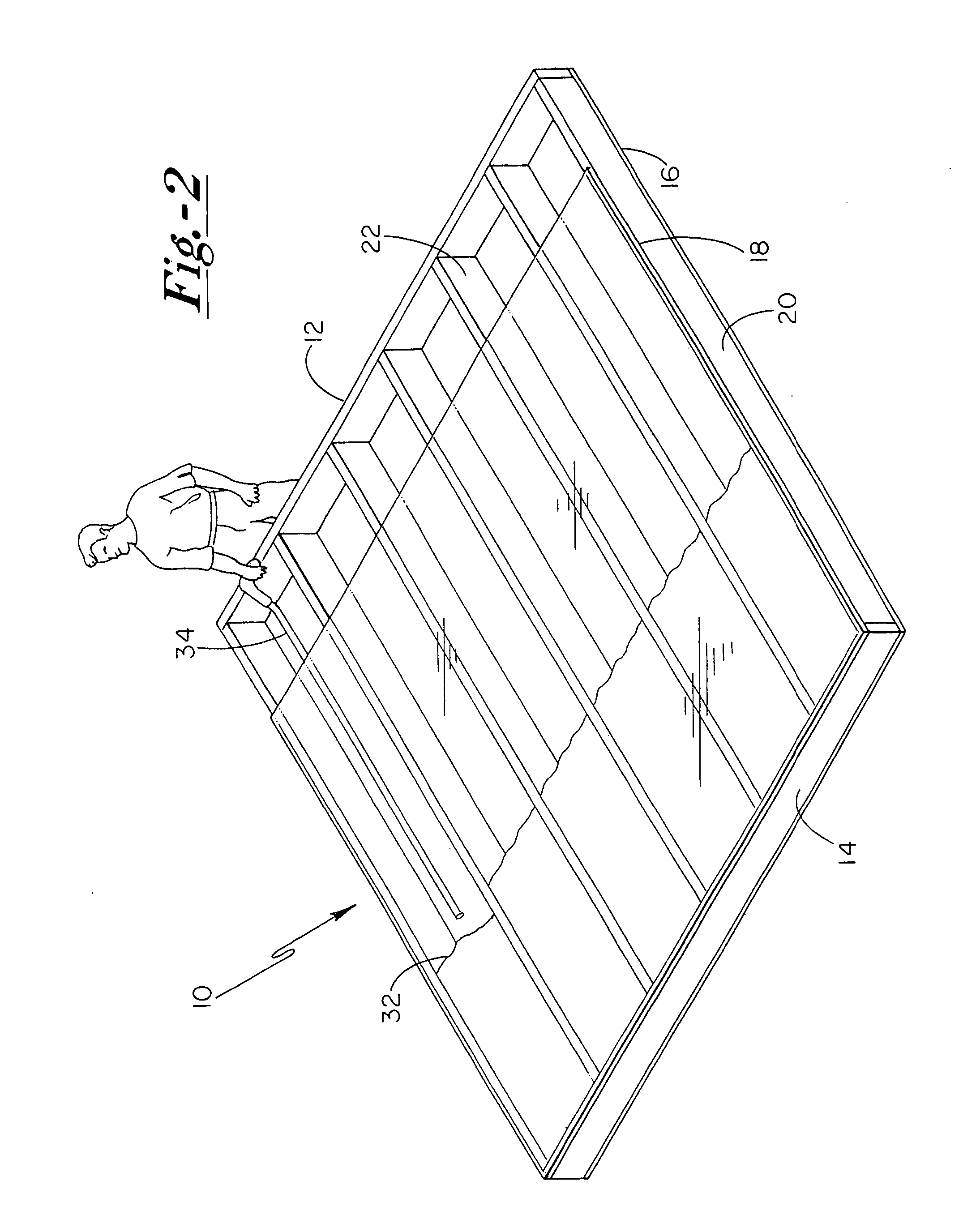Insulated stud panel and method of making such
a technology of insulated studs and studs, which is applied in the field of stud panels, can solve the problems of consuming a great amount of time, reducing the r-value, and reducing the acceptance of standard products, so as to reduce the empty space, reduce the r-value, and reduce the effect of foam density
- Summary
- Abstract
- Description
- Claims
- Application Information
AI Technical Summary
Benefits of technology
Problems solved by technology
Method used
Image
Examples
Embodiment Construction
[0057]FIG. 1 shows a stud panel 10 of the present invention. Stud panel 10 includes a first, top (or bottom) plate 12, a second, bottom (or top) plate 14, exterior (or interior) sheathing 16, interior (or exterior) sheathing 18, a pair of end or outer studs 20, and a set of interior or inner studs 22, where studs 20 and 22 are between the first and second plates 12, 14 and further between the exterior and interior sheathing 16, 18. The stud panel 10 includes a set of inner regions or spaces 24, where each of the inner regions 24 is defined by inner faces of the first and second plate 12, 14, inner faces of the exterior and interior sheathing 16, 18, and inner faces of adjacent studs, where such adjacent studs are a combination of an outer stud and inner stud or a combination of two inner studs. Each of the inner regions 24, in the panel of FIG. 1, includes a closed end 26, into which insulation can be first introduced, and an open end 28, into which insulation can be introduced as a...
PUM
| Property | Measurement | Unit |
|---|---|---|
| Density | aaaaa | aaaaa |
| Length | aaaaa | aaaaa |
| Color | aaaaa | aaaaa |
Abstract
Description
Claims
Application Information
 Login to View More
Login to View More - R&D
- Intellectual Property
- Life Sciences
- Materials
- Tech Scout
- Unparalleled Data Quality
- Higher Quality Content
- 60% Fewer Hallucinations
Browse by: Latest US Patents, China's latest patents, Technical Efficacy Thesaurus, Application Domain, Technology Topic, Popular Technical Reports.
© 2025 PatSnap. All rights reserved.Legal|Privacy policy|Modern Slavery Act Transparency Statement|Sitemap|About US| Contact US: help@patsnap.com



